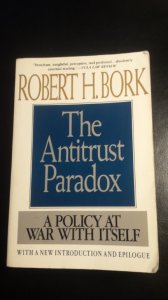
Author: Luis Blanquez
- BACKGROUND
Over the past two years, the European Commission (“EC”) has been scrutinizing the e-commerce market of consumer goods and digital content in the European Union. This is a key step on the Commission’s Digital Single Market strategy to improve access to digital goods and services.
Such strategy includes legislation to promote cross border e-commerce through the following:
In May 2015, the EC started in parallel its Sector Inquiry to identify possible competition concerns affecting European e-commerce markets. Its main purpose was to gather information on companies’ conduct and barriers to cross-border online trade, looking at online sales of consumer goods and digital content. In September 2016, the EC published a report with its preliminary findings, together with a Staff Working Document.
Finally, in May 2017, the EC issued its Final Report.
You can read our follow-up article to this one about ongoing EC enforcement actions arising out of the E-Commerce Report.
You might also enjoy our articles on EU dominance abuse and antitrust compliance programs in the US and EU.
- RELEVANT FINDINGS
The EC outlines in the Final Report what it considers as the key issues in the field of e-commerce. It acknowledges the changing characteristics and fast-growing tendency of a sector with an increasing economic role in today’s economy. It further identifies business practices and barriers that could restrict competition and limit consumer choice.
The EC reviewed more than 2,600 agreements concerning the distribution of goods in the EU, and received more than 6,800 licensing agreements from digital content providers and rights holders. The main findings in the Final Report differentiate between consumer goods and digital content.
(A) CONSUMER GOODS
Contractual Restrictions on Cross-Border Sales: Geo-Blocking
The Sector Inquiry identifies contractual restrictions between operators in the online market that the EC believes could cause problems. Unilateral decisions by non-dominant firms, however, fall outside the scope of EU competition law.
But before telling you which contractual restrictions are problematic, let me explain first what the term “geo-blocking” means. Basically, it refers to practices that prevent cross-border sales in the EU. These include the following:
- Blocking access to websites by users located in another Member State—for example when a customer located in Madrid tries to acquire a product via a French website, and is prevented from doing so because the website has been blocked due to its Spanish IP address;
- Automatic re-routing of a customer to another website of the same or a different service provider—for example when a customer located in Madrid trying to access a French website is directly re-routed to the company’s Spanish website; or
- Payment refusals based on the place of residence of the customer—for example when the payment to the French website is refused because the credit card used is linked to an address in Spain, or the delivery to Spain is denied based on the customer’s residence.
So back to the relevant contractual restrictions now: The EC is concerned about how retailers face contractual restrictions from suppliers, which prevent such cross-border selling on-line.
These questioned agreements are ones that (i) are not covered by the EC “safe harbor” under the Vertical Block Exemption Regulation (“VBER”) – this is if parties to the agreements have market shares above 30%, or there are hardcore restraints involved, (ii) preventing cross-border sales between Member States in distribution agreements, may infringe EU Competition rules.
Restrictions on the use of online marketplaces
An online marketplace is a website that facilitates shopping from different sources, such as Amazon or eBay.
An absolute ban on online selling is considered a hard-core restriction under EU law. There is, however, an important ongoing debate in Europe as to whether an absolute ban on selling via marketplaces is contrary to EU rules.
In Germany, the Bundeskartellamt issued an infringement decision against Asics on its ban to sell via online marketplaces. In April 2017, the Dusseldorf Regional Higher Court found that only the price comparison tool restrictions involved in the case were anticompetitive.
At EU level there are currently two preliminary rulings pending. One the Coty case, where the high EU court has been asked to analyze the restrictions imposed on a selective distribution agreement by manufacturer Coty on one of its authorized distributors to sell products via third party online platforms. The second one is the Samsung and Amazon case, concerning a ban on resale outside a selective distribution network and on a marketplace, by means of online offers on several websites operating in various Member States.
In its Final Report, the EC does not consider marketplace selling bans as hardcore restraints. It may, however, still scrutinize them on a case by case basis, if parties to the agreements have market shares above 30%, or there are hardcore restraints involved, according to the VBER.
Selective distribution agreements: Requirements for brick-and- mortar shops
Contractual requirements to operate at least one brick-and-mortar shop under a selective distribution agreement are compatible with the EU competition rules, as long as they are linked to quality or brand image.
The EC, however, states in its Final Report that brick-and-mortar shop requirements imposed for the sole purpose to exclude online operators from the market, may infringe EU competition rules.
Pricing restrictions: Resale Price Maintenance (“RPM”) and Price collusion
E-commerce has significantly increased price transparency, competition on price and opportunities for users to compare different options in the internet. According to the EC’s investigation, almost 30% of manufacturers systematically track resale prices: 67% track resale prices manually, whereas 38% use specific software (spiders).
The Final Report highlights that this may also increase the risk of RPM or collusion between competitors.
Resale Price Maintenance (RPM)
The imposition of minimum resale prices is considered a hardcore restriction under EU Competition law. Similarly, when manufacturers seek to enforce compliance with recommended prices through contractual restrictions or some form of coercion, they may also infringe competition rules.
The EC is concerned that online price transparency may facilitate such practices, making it easier for manufacturers to detect deviations and enforce RPM provisions.
You can read articles on The Antitrust Attorney Blog on Resale Price Maintenance here.
Price collusion
Price fixing between competitors is considered one of the most serious infringements under EU competition rules.
The Final Report found that almost 50% of retailers track online prices of competitors, and 78% of them use software to monitor rivals’ prices, adjusting their own prices accordingly.
The EC is thus concerned that price monitoring may facilitate or strengthen collusion between retailers, by making the detection of deviations from the collusive agreement easier, while allowing them to counteract by adjusting their prices.
Continue reading →
 The Antitrust Attorney Blog
The Antitrust Attorney Blog











